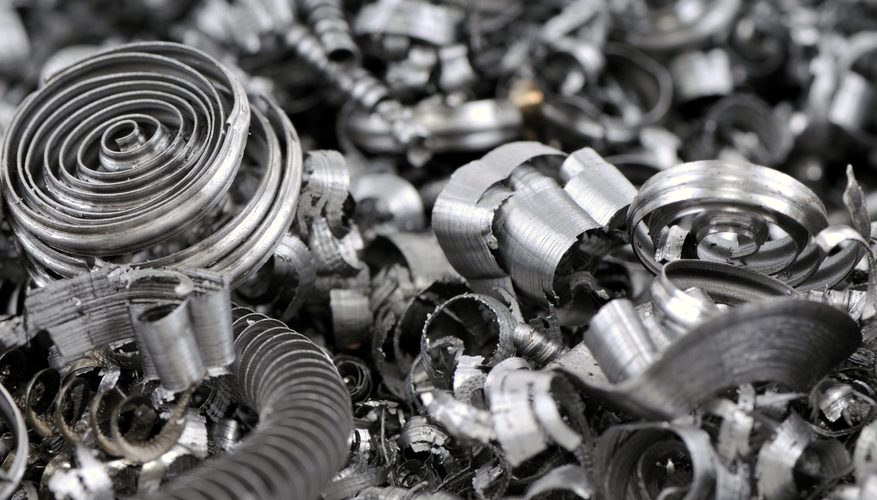
China logistics crunch hits Europe scrap metal exports

"Most logistical supply chains [in China] have been cut. The ports are crazy, the motorways are blocked, and a lot of vessels have been diverted. Ships are not coming back as expected, and there is now a shortage of containers in Europe," a Europe-based supplier said.
Extensive travel restrictions in China since the end of January, designed to limit the spread of the coronavirus, has resulted in port congestion and delivery delays. As many workers in China were not able to return to work on time, operations at ports and factories were affected, which resulted in many containers at Chinese ports not being able to clear customs. As containers were not emptied and returned to shipping vessels, this has greatly reduced availability globally.
The delayed restart of Chinese manufacturing activities has also hampered downstream industries' consumption of scrap metal, which has further disrupted the supply chain.
Although most plants in China had restarted operations by mid-February, many are not producing at full capacity. Chinese ports have started to process containers but the turnaround has been slowed by the inactivity of the past month, a Guangzhou-based trading firm said.
Several suppliers across the base metal scrap industry in Europe and Asia-Pacific this week faced difficulty finding vessels and containers for shipments to Asia-Pacific markets, and many are expecting freight costs to increase significantly in the coming weeks as a result of those shortages. Some were also informed of delayed shipments in the coming weeks.
"It will be harder to get vessels next month. That's why I'm trying to ship everything this month. I've got bookings to India until mid-March," an Asia-based stainless steel scrap supplier said.
To further compound the situation, some shipping vessels were not willing to sail to China for fear that their crews would contract the virus. Simply transiting Chinese ports will limit the vessels' next ports of call, as some countries have imposed restrictions, the Guangzhou-based trading company said.
European suppliers were quoted $1,000-1,200/container for Asia-bound vessels in the past two weeks. The Asia-based supplier is expecting an increase of $100/container in March to $800 for a two-week journey in southeast Asia.
Aluminium and copper scrap prices have already increased in the past week on higher freight costs, and it is expected to continue supporting export prices for copper and aluminium scraps to Asia-Pacific, but trades could be deterred by a lack of Asia-bound vessels.
Argus assessed the cif China price for 99/3 zorba at 46-48¢/lb on 21 February, up from 45.5-47.5¢/lb cif a week earlier. Indian import prices for 95/2 zorba also rose to 41-44¢/lb from 40-41¢/lb on a cif basis.
The Argus weekly copper scrap spread assessment #1 berry/candy strengthened to 20-22.5¢/lb under, from 20.5-24¢/lb under, while #2 scrap discounts also narrowed last week to 36-39¢/lb under from 36-40¢/lb under.
Chinese scrap buyers are back in the market this month, enquiring about purchases, as many of them are keen to fulfil the import quota in the first quarter, but the logistics remain a major obstacle to trades.
"It's not a question of the price of scrap, or availability. It's a question of bringing the material to China. It's more and more difficult to find empty vessels. The main challenge is the shipping," a second Europe-based trading firm said.
Those who have been lucky enough to secure shipping before container availability tightened now face a longer-than-usual delivery time. A shipment from Europe to China will take more than a month during this period, compared with the usual one-month delivery wait.
"It will be early March by the time we finish loading the containers. It will be on the sea for one month, and after that, it will hang around the port. It will be early May by the time customers get the goods," a third Europe-based trading firm that has sold copper scrap to China said.
A consumer in China said he is "not surprised" that May is the soonest that newly traded scrap can be delivered in China.
Many hope that the coronavirus outbreak in China will be under control by May, but it remains far from certain that the Chinese market will normalise any time soon, even under that assumption.
Yoke Wong and Jethro Wookey


Trump weighs using $2 billion in CHIPS Act funding for critical minerals

Codelco cuts 2025 copper forecast after El Teniente mine collapse

Electra converts debt, launches $30M raise to jumpstart stalled cobalt refinery

Barrick’s Reko Diq in line for $410M ADB backing

Abcourt readies Sleeping Giant mill to pour first gold since 2014

Nevada army depot to serve as base for first US strategic minerals stockpile

SQM boosts lithium supply plans as prices flick higher

Viridis unveils 200Mt initial reserve for Brazil rare earth project

Tailings could meet much of US critical mineral demand – study

Kyrgyzstan kicks off underground gold mining at Kumtor

Kyrgyzstan kicks off underground gold mining at Kumtor

KoBold Metals granted lithium exploration rights in Congo

Freeport Indonesia to wrap up Gresik plant repairs by early September

Energy Fuels soars on Vulcan Elements partnership

Northern Dynasty sticks to proposal in battle to lift Pebble mine veto

Giustra-backed mining firm teams up with informal miners in Colombia

Critical Metals signs agreement to supply rare earth to US government-funded facility

China extends rare earth controls to imported material

Galan Lithium proceeds with $13M financing for Argentina project

Kyrgyzstan kicks off underground gold mining at Kumtor

Freeport Indonesia to wrap up Gresik plant repairs by early September

Energy Fuels soars on Vulcan Elements partnership

Northern Dynasty sticks to proposal in battle to lift Pebble mine veto

Giustra-backed mining firm teams up with informal miners in Colombia

Critical Metals signs agreement to supply rare earth to US government-funded facility

China extends rare earth controls to imported material

Galan Lithium proceeds with $13M financing for Argentina project

Silver price touches $39 as market weighs rate cut outlook

















